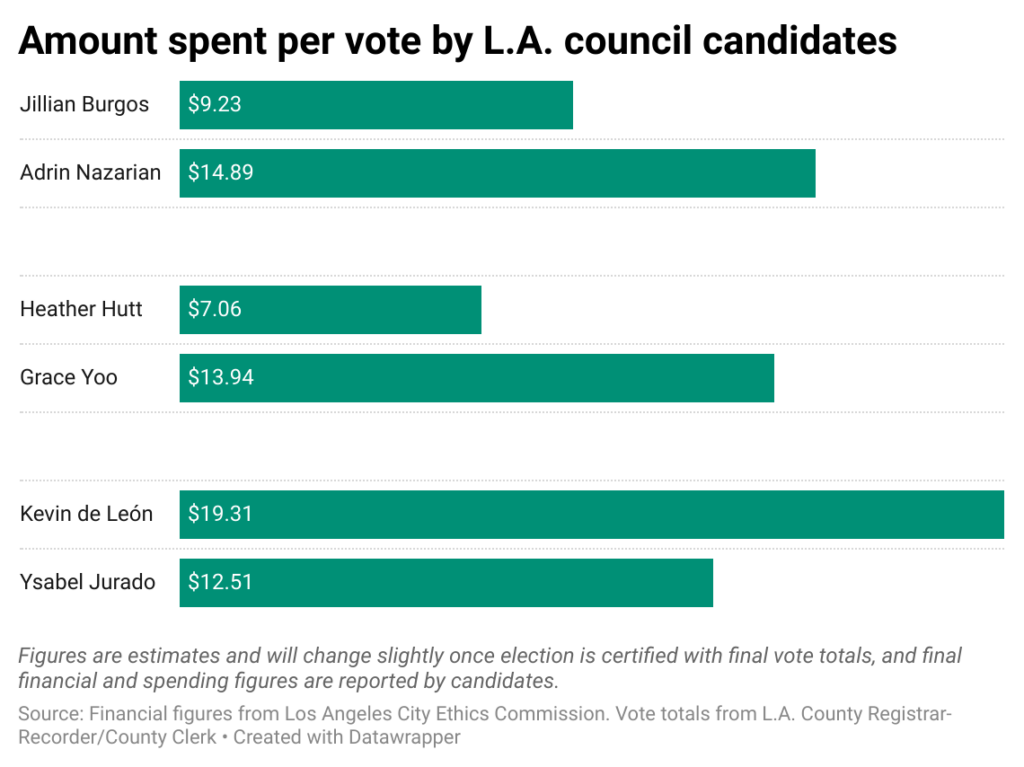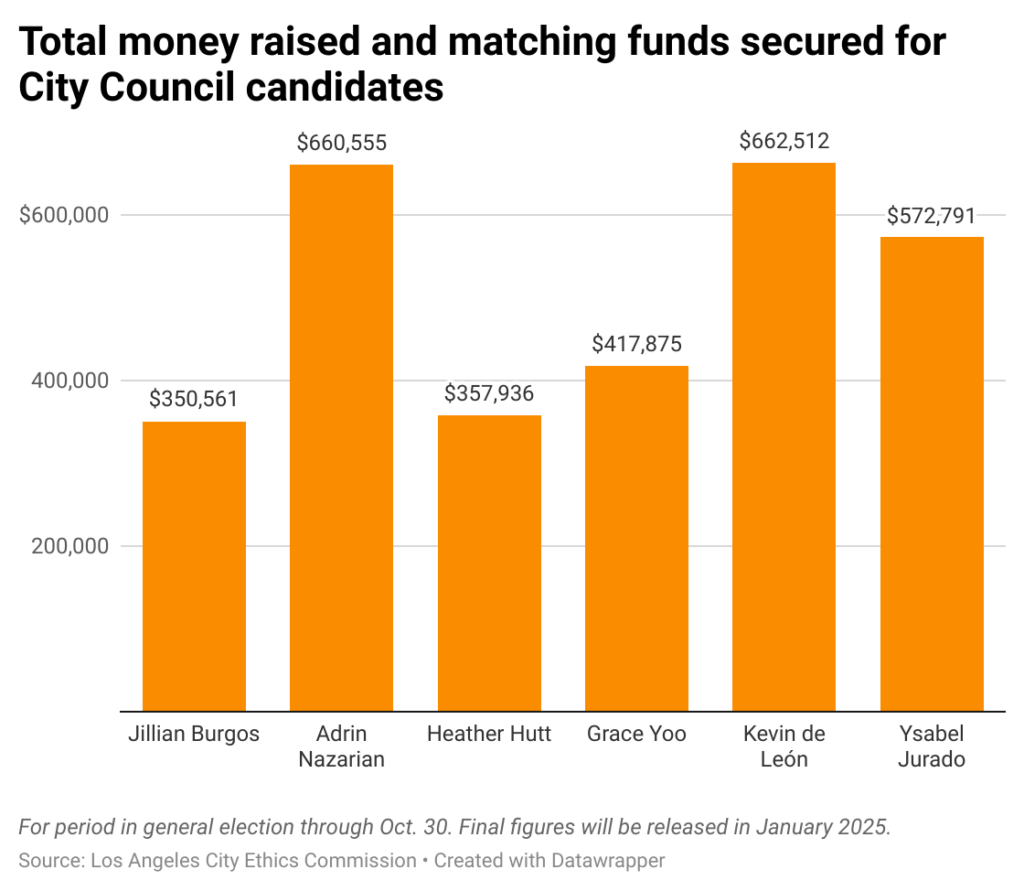Which City Council candidate got the most bang for their election buck?

The winners and losers of the three Los Angeles City Council seats up for grabs in the Nov. 5 election have been determined. But who on the ballot got the most bang for their buck?
That would be Heather Hutt, the District 10 incumbent who, after being appointed to the post on a permanent basis in 2023 (she replaced the convicted Mark Ridley-Thomas), was running for a full term.
[Get crime, housing and other stats about where you live with the Crosstown Neighborhood Newsletter]
Not only did Hutt win easily, she spent approximately $7.06 per vote, according to a preliminary analysis of campaign finance data and vote totals. She got almost twice the value of Grace Yoo, her competitor in the race for the Mid-City seat.
According to financial disclosures filed with the City Ethics Commission, Hutt accumulated $227,284 in contributions through the period ending Oct. 30. She augmented that with $130,652 in matching funds, the “free money” awarded by the city to candidates who secure a set amount of small donations from local residents. That gave her a total of about $358,000.
As of the Tuesday afternoon update from the L.A. County Registrar-Recorder, Hutt had 50,584 votes, more than any of the other five council candidates.
Yoo, an attorney running for the seat for the third time, received 29,853 votes. She had $418,000, meaning she spent $13.94 for each supporter.

Crosstown’s calculation is an estimate, with a total amount representing the money raised from donors and matching funds, and the assumption that every dollar available to a candidate will be spent. Final fundraising and spending figures will be released in January. Additionally, vote totals will increase slightly—and the price per vote will decline—as a small number of lagging ballots are counted until the election is certified on Dec. 3.
Caruso’s deep pockets
Candidate expenditures and value can vary wildly. Crosstown reported that in the 2022 mayoral runoff, businessman Rick Caruso shelled out approximately $160 per vote, spending $67 million during the general election period and receiving about 420,000 votes. Karen Bass dropped $4.98 million and had nearly 510,100 votes—equating to $9.77 per ballot.
In the same election, Kenneth Mejia won the City Controller contest by spending just $1.06 per vote. That was yet another example in Los Angeles of a candidate having less money than a competitor, but coming out on top.
The lowest efficiency level on this month’s ballot, on a cash-for-votes basis, was District 14 Councilmember Kevin de León, who lost his seat to attorney Ysabel Jurado. He had $662,000 at his disposal. Jurado had $573,000.
But Jurado spent $12.51 for each of her 45,703 votes in the race for the Eastside seat. De León spent $19.31 for each of his approximately 34,248 votes.
In District 2, in the San Fernando Valley, former state legislator Adrin Nazarian spent $14.89 per vote. That was more than his competitor, small business owner Jillian Burgos; she spent $9.23.

But Nazarian came out on top, his 44,239 votes about 6,500 more than his opponent. That means he will replace termed-out Councilmember Paul Krekorian.
The money spent by each candidate is only part of the equation, as in certain races unions, business groups and others drop hundreds of thousands of dollars in “independent expenditures” on things such as mailers, phone banking and web ads. With IEs, individuals or groups can spend whatever they want, but may not coordinate with a candidate’s campaign.
How we did it: For our calculations, we combined the amount each candidate raised from donors in the general election, and the amount they secured in city matching funds, for the period through Oct. 30, according to disclosures filed with the City Ethics Commission. We used this in conjunction with the number of votes received through Nov. 19, according to totals reported by the Los Angeles County Registrar-Recorder/County Clerk.
Have questions about our data or want to know more? Write to us at askus@xtown.la.






